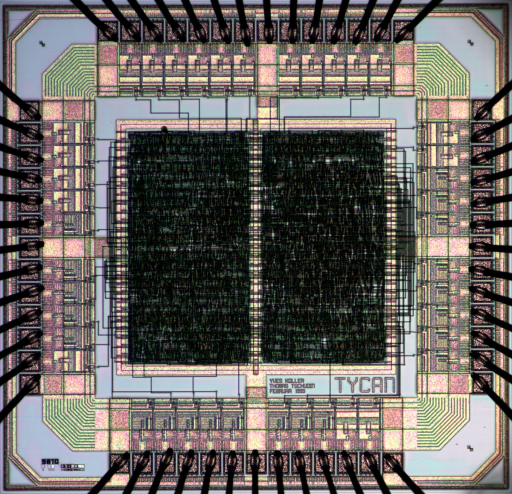The IIS Chip Gallery
Tycan (1999)

by

| Application | Industrial |
| Technology | 600 |
| Manufacturer | austriamicrosystems |
| Type | Semester Thesis |
| Package | LCC56 |
| Voltage | 3.3 V |
| Clock | 20 MHz |
The CAN (Controller Area Network) standard specifies a serial communication protocol. Originally developed for automotive applications, it has evolved to one of the most used field bus systems in process automation where peripheral intelligence is desired. Its key features are real-time capability and ease of network reconfiguration. These advantages however come at the expense of relatively low transfer rates.
In this semester thesis a bus controller compliant with CAN specification 2.0B has been developed. The controller implements the complete transfer protocol including arbitration, message framing, and error detection and signalling. Over a parallel interface the TYCAN chip can be connected to a host computer. A transceiver chip interface makes the CAN controller independent of the physical network implementation.
The correct realization of bit timing was a major challenge during this work. Since each node in the network has its local clock, synchronization is of crucial importance. With its programmable bit time logic the TYCAN controller can be adopted to different network parameters. For a nominal clock frequency of 20 MHz, transfer rates between 25 and 100 kBit/s are possible.